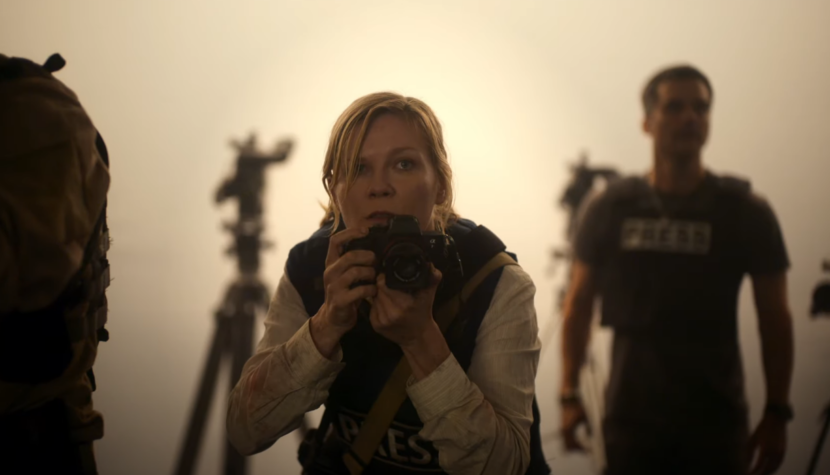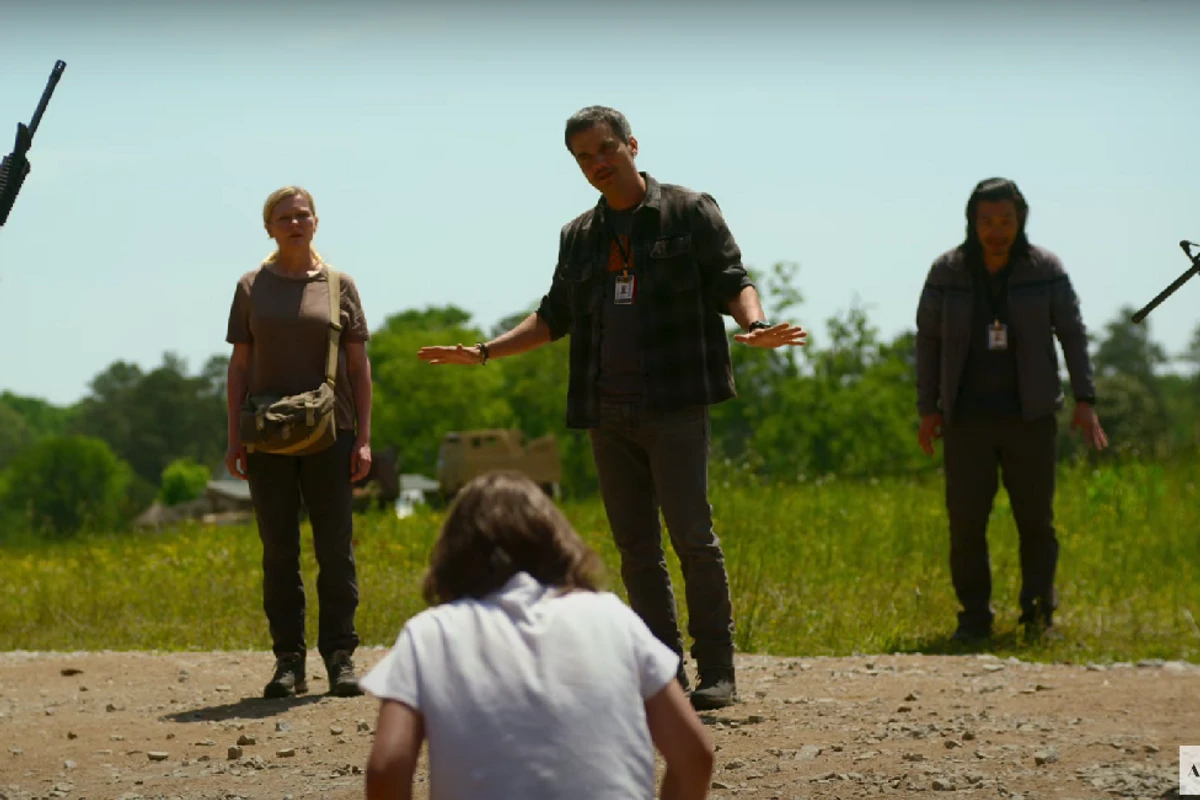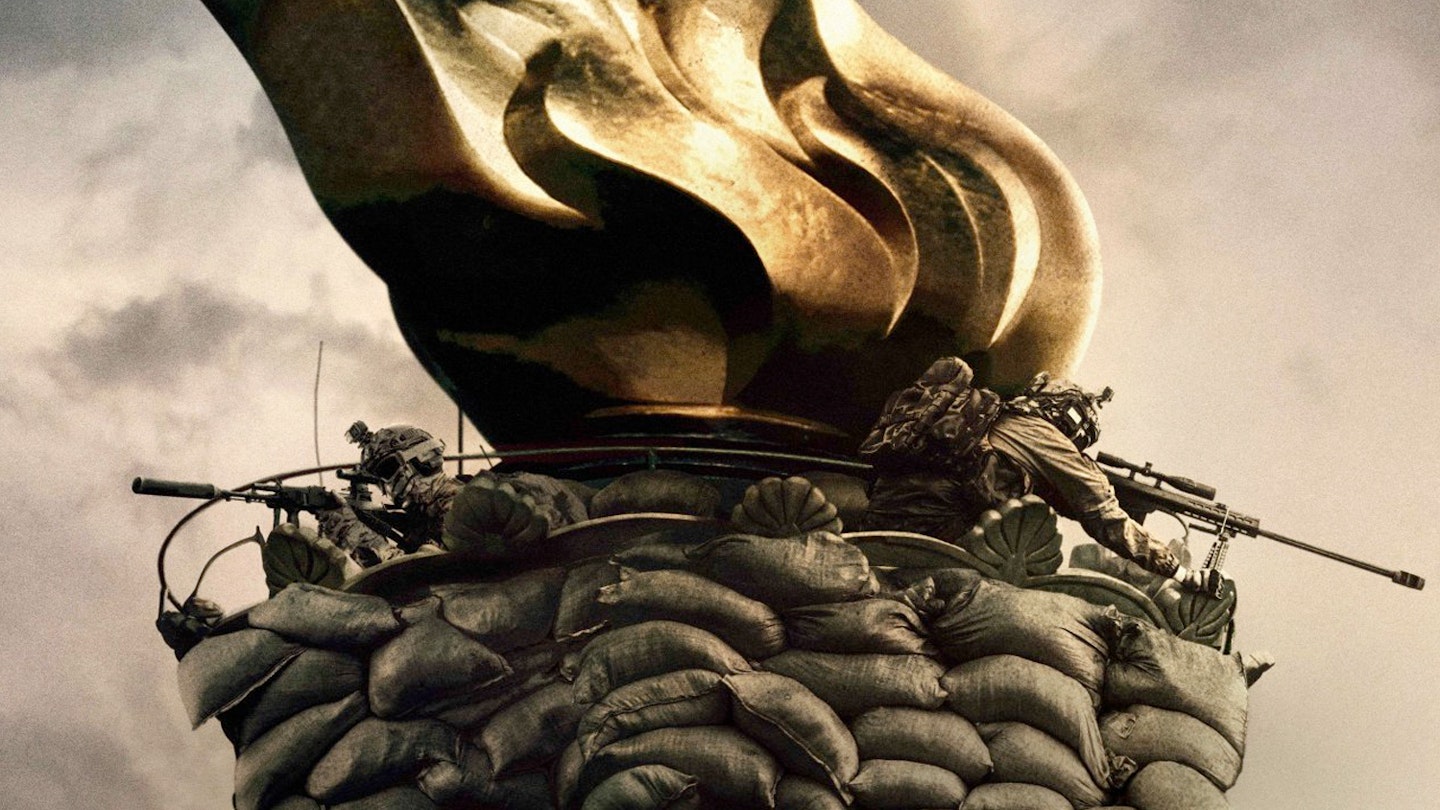CIVIL WAR. Garland’s Apocalypse Now [REVIEW]

Alex Garland is, to me, one of the most unconventional and visionary creators in contemporary cinema. The brilliant mind behind Ex Machina is an uncompromising director, and I’m aware that his films (or series) can leave a lasting impact. This was the case with Men, which divided both audiences and critics. However, this principle won’t apply to Civil War. It’s one of the most important films of recent years, a unique anti-war manifesto that terrifies, shocks, and grips you in your seat. Even with a remarkably simple, almost banal plotline. In this case, the spectacle compensates for everything, visually absorbing and emotionally engaging.
The United States is on the brink of catastrophe. In a crisis, the president calls upon the nation to defend against an alliance of southern and western states. A terrifying civil war ensues. In this turbulent time, war photojournalist Lee (Kirsten Dunst), along with a team of journalists, strives to reach Washington. Their mission? To conduct a decisive interview with a president whose days are numbered. In difficult moments, Lee also finds herself mentoring the young and enthusiastic Jessie (Cailee Spaeny), teaching her how to survive in a world where every frame can decide the fate of a nation. You might ask: Is that all? Yes, that’s practically the entire plot of Civil War. However, much like in Conrad’s Heart of Darkness, this is a journey into hell, straight to its core. The simplicity of the means and plot carries a hidden discourse about existential and humanistic nature—this is an exceptionally brutal, disillusioning anti-war manifesto that lays bare what war invokes in people. Because humanity and its hidden nature are constantly at the center of attention. Garland doesn’t hold back with the audience; simultaneously, he serves us almost poetic images where every frame carries meaning. The continuous interweaving of these elements creates an effect that profoundly impacts the senses and emotions.

I find it incredibly thoughtful and, simultaneously… amusing (but in a bitter way) that in creating a film inherently tied to politics, Garland desperately and intentionally avoids it. The contemporary world is buzzing with terrifying conflicts that many of us find incredibly distant, almost unreal. Some conflicts are right at our doorstep, like the one in Israel, laden with significant political baggage requiring reflection and the formation of our own opinions. Garland, contrary to this, takes no sides. He gives suggestions, of course, but ultimately doesn’t align with Republicans or Democrats. He focuses on people and the mechanics of war. At times, he practically screams: THIS IS ABOUT LIFE AND DEATH, HUMAN! Therefore, he shows us what war looks like from the perspective of those fighting it. This is a Dantean journey through successive circles of hell, where reporters and war correspondents become our Virgils, paying homage to them while also critiquing them. Garland leaves this interpretation to the viewer. For me, the avoidance of specific political anchoring is a sensible choice. The hypothetical conflict depicted in Civil War within a single American nation becomes a kind of parable—the story told by Garland becomes quite a universal cautionary tale, a lesson, and a terrible vision of what could happen. In fact, what is happening because nothing here is made up. It’s a detailed analysis and portrayal of humanity in the face of war—its extremism, grotesqueness, and degeneracy.
The most terrifying aspect is that the scenes depicted in Civil War are not far from reality, as seen in photographs from the front lines of many contemporary conflicts I mentioned. Yes, those that most people prefer to look away from. Garland forces us to look, and we can’t tear our eyes from the screen. The escalation of brutality reaches its peak in the film’s most powerful scene, involving Jesse Plemons (more on that later). At some point, one might want to see something fantastical or straight out of science fiction on screen because the scale of realism is staggering. This is exacerbated by the fact that throughout almost two hours of viewing, there is hardly any explanation of what is really happening in America, what has happened, and what will happen. There’s only one certainty—on the other side, someone is trying to kill you, and you must do the same to survive. Cruel and simple. The viewer gets hit over the head more than once because the creators also play with our expectations and emotions on the narrative level—one moment we have almost idyllic scenes of campfires, smiling people trying to find a spark of normalcy in an abnormal world, only to be hit moments later by scenes of almost savage, naturalistic brutality.

Some might call Civil War a specific road movie, but I prefer to see it as a gradual descent into madness. The comparison with Conrad, and further with Coppola’s Apocalypse Now, is not accidental. There too, we are given a fairly simple journey from point A to B in terms of the script. What matters is what happens in between, inside, and what emerges outwardly. Therefore, in Garland’s film, the simplicity of the narrative means is also a tool for showing the path and the character development of each character. In their case, simplicity cannot be spoken of. Here, we get an acting concert played by Kirsten Dunst. It’s a concert of emotional breakdown, a loss of faith in her work and its purpose. It may sound trivial, but the story is somewhat a treatise on… professional burnout, where the trigger is not a bad boss, unpleasant atmosphere, or low pay, but the amount of cruelty, murder, and death one person can endure. I’ve never been a big fan of Dunst, but here, she played with her heart on her sleeve. A great role. Her character resonates incredibly with Jessie. It’s her youthful mirror image. There’s chemistry, power, and class in both actresses’ performances, and Cailee Spaeny once again proves that she is one of the most interesting actresses of the young generation. Their companions, Sammy (Stephen McKinley Henderson) and Joel (Wagner Moura), may have slightly smaller roles, but they too received a fair share of material to play with and performed their tasks brilliantly. Acting through emotion, glance, and immersion—there are no weak points here.
I must also mention two characters who appear briefly but leave a remarkable impact—Nick Offerman as the president and Jesse Plemons, who plays a random soldier encountered by the reporters on their journey. Offerman possesses something that allows him to steal the screen even with a passing breeze. However, Plemons captivated me, embodying the image of a sociopath perfectly. The scene in which he appears is the film’s strongest moment, vividly illustrating the absurdity, tragedy, and senselessness of civil war and… wars in general. This commentary extends beyond America. Plemons’ soldier character is no different from what we know from our own neighborhood—a typical soccer hooligan asking a passerby whom they support. The possibility of getting punched in the face then stands at a 50-50% chance. In Garland’s portrayal, this hooligan receives a weapon and a cause he fights for but doesn’t comprehend. The entire dialogue conveys this. It’s tribalism in its purest form, with all its limitations, superstitions, and cruelty. A terrifying moment.

Separate accolades should be given to the visual and musical aspects of Civil War. There is no random shot here (my eye found only one shadow error falling from different directions in the same scene), no piece of music that isn’t authentically integrated into the narrative. The creators also tell the story through image and sound, providing additional depth and underpinning extreme reactions (from joy, excitement, buzzing adrenaline to stupor) at every level. Handling the frame, depicting the perspective of war journalists, has never been more eloquent or thoughtful, and the compositional bracket with the theme of taking photos during dying moments is something that stays with you long after the viewing.
Alex Garland, literally and figuratively, takes no prisoners with his Civil War. It’s a profoundly universal yet deeply American anti-war poem, mercilessly exposing the grotesque and terror of armed conflicts. This is the kind of film where the message and spectacle seize you so much that you overlook the simplicity of the plot and narrative means. We’re hit too often to dwell excessively on it. Recovery only lasts until the next blow and the next. And so on until the finale. Then we find ourselves alone in the corner of the ring. Defeated.

